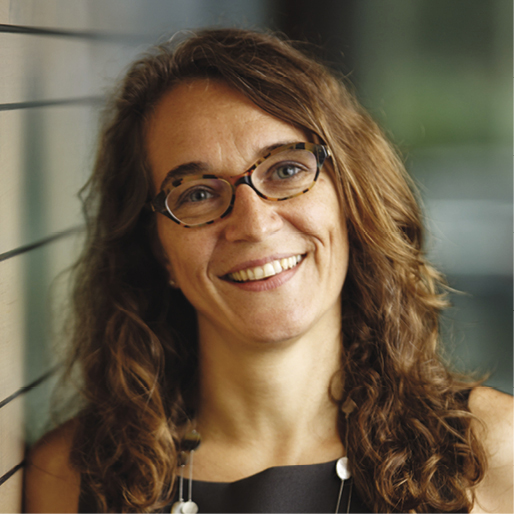Katrin Karbstein, Ph.D.
Professor of Integrative Structural and Computational Biology
Herbert Wertheim UF Scripps Institute for Biomedical Innovation & Technology
2023 Awardee
The cells of all living organisms contain thousands of nanoscale-sized industrial factories called ribosomes. Their job? To build proteins from genetic code. Understanding the fundamental workings of ribosomes—their assembly, consequences of their dysfunction and how they are repaired—is the specialty of Katrin Karbstein.
Karbstein, who is the recipient of a Howard Hughes Medical Institute scholar award, cares deeply about engaging more young people in science careers, especially those who have, in the past, been underrepresented in research. She has overseen the institute’s Summer Undergraduate Research Fellows program for the past decade, and recently helped build a new post-baccalaureate training program for recent graduates interested in research careers.
“It’s one of the most rewarding things, to be educating youth in the science community,” she said. “When you’re working with an undergraduate intern, they grow so much.”
Karbstein earned a diploma in biochemistry from Witten/Herdecke University and moved to the United States to earn her doctorate in biochemistry from Stanford University. Her postdoctoral work took place at the University of California, Berkeley, where she worked with famed biochemist Jennifer Doudna, who went on to share a Nobel Prize in 2020 for discovering the gene editing tool CRISPR.
Karbstein’s fascination with ribosomes continues.
“These little protein factories make nearly every molecule inside of ourselves, and if proteins aren’t made correctly, or in the correct amounts, it can lead to protein aggregation and all these diseases, including cancer,” she said.
Karbstein’s group has made many discoveries, including how quality control in a ribosomal subunit is conducted, and the implications for cancer arising from its mis-assembly. They also recently found that while most ribosomes make most proteins, ribosomes can specialize by remodeling.
In his nomination letter, Patrick Griffin, scientific director, noted that Karbstein serves on the editorial board for ACS Chemical Biology and the board of the RNA Society. She is also the recipient of a National Science Foundation CAREER Award.
Karbstein and her team use biochemical, genetic and genomic experiments to study ribosomes, working in simpler model organisms such as yeast, and also in human cells. She relishes each discovery.
“It’s exactly like filling in a puzzle,” she said. “You’ve got this piece, then another, and then you say, ‘Oh! That’s how all the pieces come together!’”


